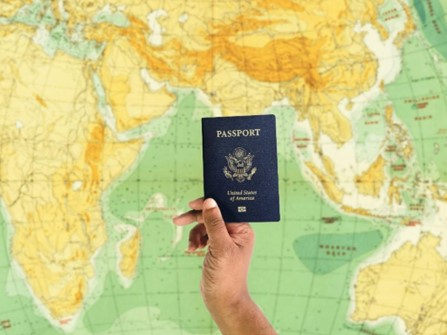Imagine receiving an acceptance letter from your dream university only to have your plans halted by a student visa denial. The disappointment is real, and the stakes are high. This story is becoming all too common for thousands of aspiring students globally. Recently, there’s been a sharp uptick in student visa denial rates, leaving many wondering why.
The reasons go beyond simple mistakes. Understanding the current immigration landscape, stricter policies, and how to prepare an application thoroughly can make all the difference. This blog will dive into the issue and give you insights to avoid becoming a statistic.
Changing Immigration Policies: The Invisible Wall
Over the past few years, governments worldwide have tightened their immigration policies. These changes are often politically motivated, reflecting broader concerns about national security, economic stability, or workforce dynamics.
For instance, countries like the United States and Canada have adopted stricter visa screening measures. This includes heightened scrutiny of financial stability, academic intent, and even ties to the applicant’s home country. While these measures aim to prevent misuse of student visas, they inadvertently deny well-meaning students a chance to pursue their education abroad.
What You Should Know
- Policy Awareness – Stay updated on the latest immigration laws and policies in your target country.
- Understanding Intent – Clearly demonstrate your intent to return home after your studies. This is often a critical factor in securing approval.
The Financial Factor: Are You Prepared?
Financial proof is among the most common stumbling blocks for student visa applicants. Governments want assurance that students can cover tuition and living expenses without working illegally.
Unfortunately, many applicants fail to meet the required documentation standards or present inconsistent financial records. Minor errors, like currency mismatches or incomplete bank statements, can lead to rejection.
How to Strengthen Your Case
- Provide Clear Documentation – Submit detailed proof of funds, including bank statements, scholarships, or sponsorship letters.
- Show Reserve Funds – Demonstrate additional financial reserves to cover unexpected costs.
- Avoid Last-Minute Changes – Sudden deposits in your account may raise red flags, so ensure financial stability well in advance.
Interview Anxiety: A Make-or-Break Moment
The student visa interview can be daunting. Many applicants struggle to articulate their goals or answer critical questions convincingly. Consular officers assess not just your answers but also your demeanor and confidence.
Common Mistakes During Interviews
- Unclear Academic Goals – This raises doubts about your intent if you can’t explain why you chose your program or institution.
- Overconfidence or Nervousness – Striking the right balance is crucial. Appearing too rehearsed or overly anxious can work against you.
Pro Tips for a Successful Interview
- Practice Regularly – Prepare mock interviews with friends or mentors to refine your responses.
- Be Honest – Don’t fabricate answers. Authenticity is key.
- Know Your Program – Research your course details thoroughly to demonstrate genuine interest and preparedness.
Documentation Errors: A Simple Slip-Up, Big Consequences
Incomplete or incorrect documentation remains a significant reason for visa denials. These mistakes can derail your application, whether it’s a missing signature, expired passport, or incomplete application form.
Documents to Double-Check
- Valid Passport – Ensure your passport is valid for at least six months beyond your intended stay.
- Admission Letter – A verified letter from the institution confirming your enrollment.
- Financial Proof – As mentioned earlier, ensure all documents are error-free.
- Academic Records – Certified copies of transcripts, diplomas, and language proficiency tests.
The Role of Intent and Ties to Home Country
One of the most subjective aspects of the visa process is proving your intent to return to your home country after completing your studies. Consular officers evaluate your family ties, career goals, and property ownership as indicators of your intention to return.
Applicants who fail to demonstrate this often face rejection. While the burden of proof can feel unfair, it’s a reality that applicants must prepare for.
How to Demonstrate Strong Ties
- Explain Your Plans – Outline clear career goals that tie into opportunities back home.
- Provide Evidence – Include documents like job offers, family business ownership, or property deeds.
- Stay Consistent – Ensure your application and interview responses align.
Recent Trends Impacting Student Visa Denial Rates
Beyond personal factors, broader trends also play a role in rising student visa denial rates.
- Increased Applications – Post-pandemic, universities are seeing record applications, making the visa process more competitive.
- Geopolitical Tensions – Strained relations between countries can lead to more rejections for certain nationalities.
- Fraudulent Applications – A rise in fraudulent claims has led to stricter scrutiny of all applicants.
Understanding these trends can help you better navigate the process and adjust your strategy accordingly.
Practical Tips to Improve Your Chances
- Start Early – Begin gathering documents and preparing your application well in advance.
- Seek Expert Guidance – Consult immigration advisors or legal professionals for personalized advice.
- Stay Organized – Create a checklist and ensure all documents are accurate and complete.
- Monitor Deadlines – Submit your application within the timelines to avoid unnecessary delays.
- Learn from Rejections – If denied, analyze the reasons carefully and address them before reapplying.
The Emotional Toll of a Student Visa Denial
A student visa denial is a profoundly personal blow. For many, it represents years of planning and dreams temporarily derailed.
Acknowledging these emotions and seeking support from family, friends, or professional counselors is essential. Remember, denial is not the end of your journey. With better preparation and persistence, success is often within reach.
Student Visa Denial Rates – Your Future Awaits
Student visa denial rates may be climbing, but the key to overcoming this lies in preparation, authenticity, and resilience. Understanding the reasons behind denials and proactively addressing potential weaknesses can significantly improve your chances of success.
At Spirit One, we’re committed to providing accessible legal insights to help you navigate these challenges. Your dreams are worth fighting for; you can turn them into reality with proper guidance.


